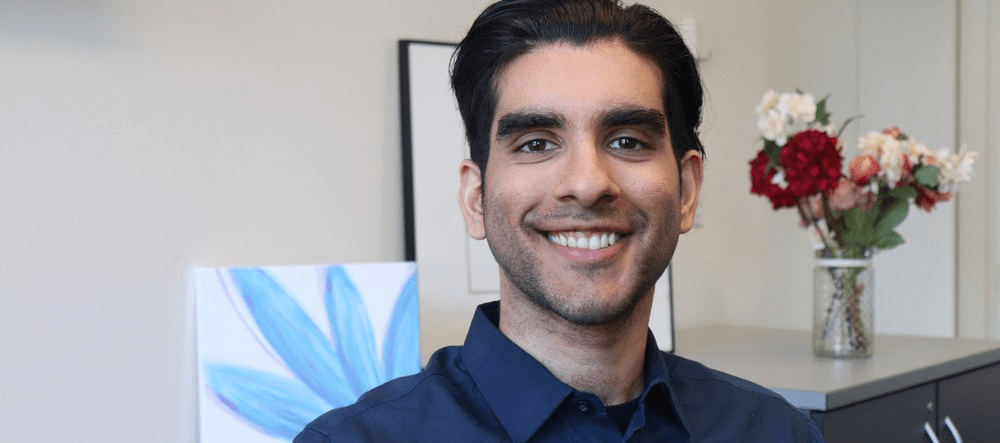Adding up the Bill for Unpaid Caregivers

When Muriel was diagnosed with dementia, her daughters shared the responsibility of caring for her as long as they could. They purchased personal support services, took time off work, set up a bed on the main floor of each sister’s house and eventually paid for long-term care when home care became unmanageable. It’s a common scenario.
“We know that in Canada, rates of dementia are on the rise. In Ontario we see a number of dependent elderly with dementia living at home now,” says Husayn Marani, one of three Junior Researcher Development participants brought on to work with VHA Home HealthCare in 2018. A third-year doctoral student at the University of Toronto’s Institute of Health Policy, Management and Evaluation, Husayn is researching the costs for family caregivers looking after a loved one with dementia at home.
Ontario’s Aging at Home strategy acknowledges this type of care has many benefits and encourages it, notes Husayn. “It obviously helps dependent elderly, including those with cognitive impairment, age with dignity within their home, [and] there are economic benefits by shifting the responsibility from the community to the individual. However, we’re starting to see that the shift in cost is being imposed on family caregivers themselves,” he says.
Anecdotally, we know family caregivers cover numerous out-of-pocket costs for things such as home upgrades, transportation, respite care and in-home care providers, and many of these costs do not have available subsidies. There are also opportunity costs from not pursuing employment or advancement in order to provide unpaid care. There is little research available about the extent of these costs, how caregivers experience them and how well they feel protected from financial risk by government supports.
“We also don’t know if caregivers for people with cognitive impairment experience these costs differently than caregivers for people with other conditions. I hope my research might unearth these things,” says Husayn. “These costs may be contributing to issues like financial burnout that compromise the quality of care that caregivers can provide.”
Working with VHA has given Husayn access to important research connections to support his project development. The first part of the study is a qualitative analysis of the costs that family caregivers perceive they have. Husayn is working with VHA to connect with a diverse group of caregivers from across Ontario who are interested in participating. The second part of the research is a quantitative analysis of available data, such as government information on home care costs, to see if these align with the qualitative findings. “If they don’t correspond, it calls into question whether the financial supports available from the government accurately capture or protect against the true costs that caregivers are experiencing out of pocket,” says Husayn.
In shaping his research project, Husayn has already spoken to many caregivers, which had an unexpected impact on his approach. “When I started this research, I spoke of these costs as a burden to caregivers. But many caregivers see these costs not as burdens but as responsibilities—something that they do because they are caring for their loved one who has dementia,” he explains. “In fact, as caregivers for my mom who has MS, my family does not view the costs for home upgrades or the costs for her care as burdens. They are something that we do out of love and responsibility and caring. I think that difference will shine through as I conduct my research. It has informed the way I have developed my interview guide.”
Husayn will defend his proposal later this year and is excited to begin the qualitative stage of interviews.
“Family caregivers now face a huge responsibility. They are saving the government a significant amount of money through their unpaid work and I think there is a responsibility on the government to protect family caregivers from these financial risks. I hope my findings will inform strategies and targeted interventions for caregivers and will help demonstrate the critical role unpaid caregivers are playing in dementia care.”
To watch a video about Husayn’s research visit: https://bit.ly/2OCLizS.
